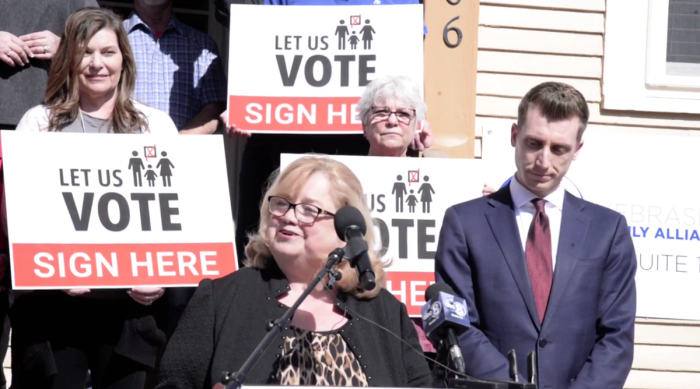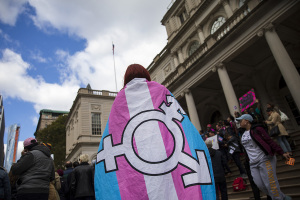Opponents of Nebraska city’s LGBT ordinance gather enough signatures to force referendum

An ordinance in Nebraska’s capital city that extends discrimination protections to include sexual orientation and gender identity could be put on the ballot this November or rescinded after referendum petitions garnered four times the needed signatures.
The “Let Us Vote” referendum initiative needed 4,137 signatures, equivalent to 4% of voters in Lincoln. But petitions were signed by more than 18,500 voters in just 15 days, forcing the Lincoln City Council to put the Fairness Ordinance on the ballot or rescind the law, according to the Nebraska Family Alliance.
“We want Lincoln to be a fair and welcoming place for all people. Unfortunately, there was nothing fair about the ordinance passed by the city council,” the socially conservative advocacy group argued in a statement.
Critics contend that the ordinance allows trans-identified biological men to use women’s restrooms, locker rooms and showers if they identify as women. In addition to such rules being enacted for businesses and places of public accommodation, the alliance fears that the law could also impact churches and private schools.
The ordinance also adds active military and veterans as a protected class, apart from updating definitions of marriage, race and natural origin.
“This is why a diverse coalition of more than 340 volunteers of different backgrounds, ages, and nationalities rallied together to collect 18,501 signatures from concerned citizens, business owners, and more than 70 churches in just two weeks,” the group said.
The expanded ordinance passed the Lincoln City Council on Feb. 14. The Nebraska Family Alliance launched its repeal effort the next day to get the required number of signatures in 15 days.
During a press conference last Tuesday, Karen Bowling, the executive director of Nebraska Family Alliance, said the “people of Lincoln have responded.” The NFA team submitted 1,366 petitions with 18,501 signatures to the city council.
“Today is about due process,” she said, “to give a voice to Lincoln residents who love their city and love their neighbors.”
The process has begun to validate signatures.
“These petitions were circulated in every area of the city and every demographic,” Bowling said, adding that they received signatories from over 72 churches.
“Slovic, Ukranian, Vietnamese and Spanish-speaking churches of both Protestant and Catholic denominations have participated. Our friends from the Islamic Center also signed petitions as well as Republicans, Democrats and Independents.”
She said that the initiative is “nonpartisan” and included people of different perspectives.
“Both proponents and opponents to the ordinance signed petitions because they believe the gravity of the issue should go to the vote of the people or the city council should rescind their decision," Bowling said.
The Fairness Ordinance has received the support of pro-LGBT civil rights groups. ACLU of Nebraska accused the measure's opponents of spreading "misinformation" in an attempt to "clock back on basic human rights."
"Everyone deserves to be treated fairly on the job, when creating a home for themselves and their families, and in public life," ACLU of Nebraska Legal and Policy Counsel Sara Rips said in a statement. "We are ready to work to ensure Lincoln supports equality and to make sure no one in our community is left behind.”
The Lincoln Journal-Star reports that at least four council members said they support putting the policy up for a vote. Such a vote would occur either in a special election or in November’s general election.
However, Dave Shively, Lancaster County’s election commissioner, told the newspaper that state law doesn’t permit the holding of a special election so close to the date of a regularly scheduled election.
A referendum petition against a less expansive version of the ordinance gained enough signatures in 2012. However, the council didn’t put it for a vote.





























